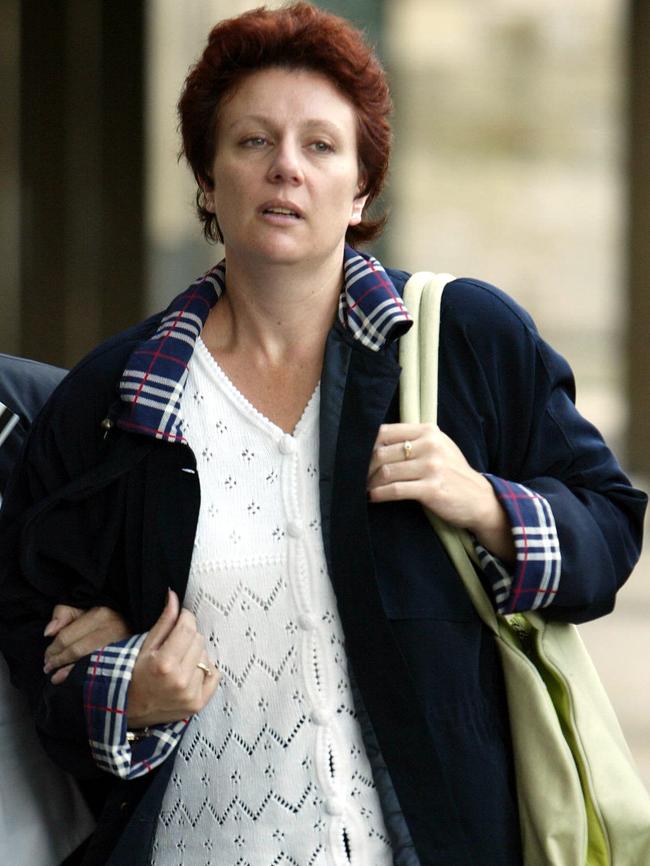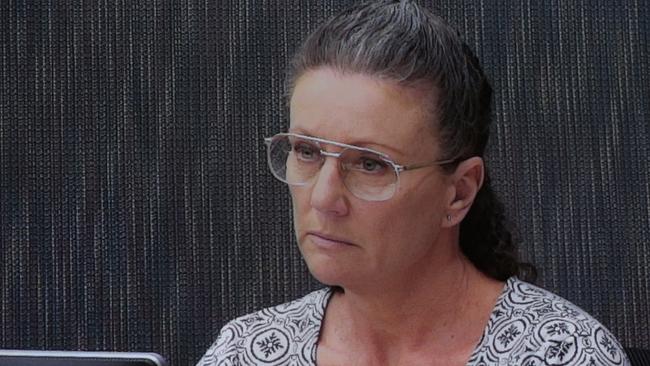Kathleen Folbigg appeal ends with accusation husband had motive for murder
Notorious baby serial killer Kathleen Folbigg has pointed at her husband as the potential murderer of their four children but a judge has described it as a ‘red herring’.
Police & Courts
Don't miss out on the headlines from Police & Courts. Followed categories will be added to My News.
Notorious child killer Kathleen Folbigg continues to point the finger at her former husband for her four babies’ deaths with an appeal court hearing that a tapped phone call could have helped clear her.
It came as her legal team partly abandoned claims an inquiry chief was biased in how he considered new genetic evidence in the infamous case.
Lawyers for the convicted killer told the Court of Appeal that Reginald Blanch QC AM, who ran an inquiry into her two-decade legal saga, was wrong to conclude she killed her four babies between 1989 and 1999.
After a 2003 trial, appeal and the 2018-19 inquiry — this week marked yet another taxpayer funded bid by the killer to walk free before the end of her 30 year sentence.

Barrister for the Attorney-General Stephen Free SC, who is defending the Blanch inquiry, said Folbigg’s team had failed to identify a single legal error in the inquiry.
Folbigg’s barrister Jeremy Morris SC, on Tuesday, raised questions about an intercepted phone call that they claim was incorrectly put before Mr Blanch’s inquiry.
Portions of the call were redacted and those hidden lines, Mr Morris said, could have allowed Folbigg to advance a “potential motive” for Craig Folbigg to kill the children.
Justice John Basten said it was considered a “red herring” by the inquiry and disregarded.
The court heard Mr Folbigg was never investigated and never considered a suspect.
Mr Morris partly walked back a claim that Mr Blanch was biased by not properly taking new medical evidence into account.
Mr Blanch had completed much of his final report when new studies emerged suggesting two of the children could have died from complications caused by a genetic mutation called CALM2, the court heard.

Mr Blanch was not convinced Folbigg was innocent and ultimately decided the evidence had “reinforced her guilt”.
Folbigg’s lawyers say it showed the inquiry hadn’t considered the new evidence as it should have. It was dealt with in an addendum rather than the main report, the court heard.
But Justice John Basten replied with a simple “so what?”.
“(The inquiry) was completed before you got there,” he said.
Mr Free also denied another important suggestion advanced by Folbigg - that Mr Blanch read her diaries assuming she was guilty rather than innocent.
Folbigg had written haunting passages including that one of her children had left “with a little help”.
Other entries talk about the fear she had about bad things happening if she was left alone with them.
Her lawyers said she might have felt responsible for their deaths, or guilty about their treatment even if she didn’t kill them.
“The incriminating nature of much of the entries in this diary is obvious,” Mr Free said.
The Court of Appeal will rule on Folbigg’s fate at a later date.
She will remain in custody until then with an earliest possible release in 2028.




